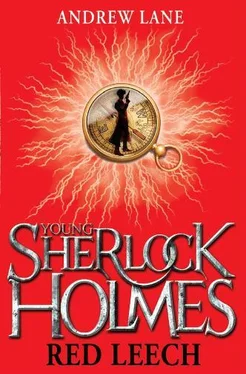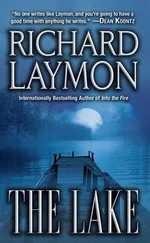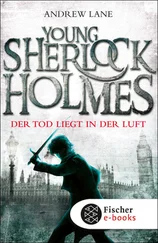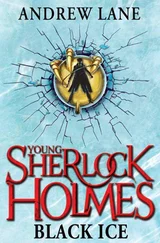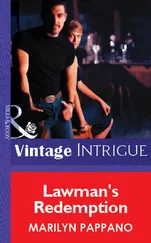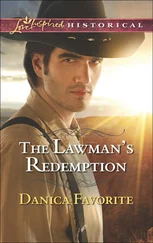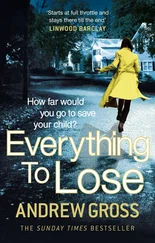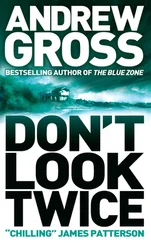After a few minutes, he realized that he had been hearing a violin playing for some time without noticing. Rufus Stone? Probably — the chances of their being two violinists on board were fairly slim, and he thought he was beginning to be able to detect some elements of Stone’s style — the flourishes he threw in at the end of certain phrases, and the way the fingers of his left hand sometimes struggled with complicated arpeggios.
He went looking for the man, and found him in his usual spot near the bows of the ship. This time there was no crowd around him. Perhaps they’d all got bored.
“I was beginning to wonder if you’d decided to abandon our lessons like a man throws away a threadbare handkerchief,” Stone called, still playing.
“I had... a busy afternoon,” Sherlock responded. “But I’m here now.”
“Then let’s start.” Rufus stopped playing and lowered the violin. “Any questions before we see how much of your stance you remember from this morning?”
Sherlock thought for a moment. “What’s your favourite piece of music?” he asked. “Is it the Bruch you were playing this morning?”
Rufus thought for a moment. “No,” he said eventually. “I have a sneaking fondness for the work of Henryk Wieniawski. He has written several violin concertos, of which I prefer the second, in D minor. And then there’s Giuseppe Tartini’s infamous violin Sonata in G minor. That is a true test of a violinist’s skill.”
“Infamous?” Sherlock asked.
“It’s known as the Devil’s Trill Sonata. Tartini claimed that he’d had a dream of the Devil playing the violin. When he woke up he tried to write down the piece of music the Devil was playing, and this was the closest he could get. It’s so fiendishly difficult that some critics have suggested that Tartini had to have sold his own soul to the Devil in exchange for the skill to play it.”
“That’s rubbish.”
“Of course it is. But it makes for a good story, and it helps to swell an audience if they think there’s something spooky or bizarre about the music you’re going to play’ He held the violin out to Sherlock. “Now let’s see how much has stuck.”
For the rest of the afternoon, Sherlock held the violin under Rufus Stone’s critical eye and tried, one after the other, different ways of using the bow to elicit notes from the instrument without actually worrying about which note it was. At the moment it was the technique that Rufus wanted him to master. He started with simply bowing the string in long, smooth, flowing gestures — détaché, as Rufus described it — while just supporting the neck of the instrument with his left hand rather than actually holding down any strings. That in itself took hours until Rufus was satisfied, first on one string and then on the others, trying hard to attain an even tone to the note no matter how long it lasted.
And that was how the rest of the voyage went. After breakfast, Sherlock would join Rufus Stone on deck for two hours, then they would move to the saloon for lunch. Another two hours of practice and then Sherlock would head back to his cabin for a break to read some more of Plato’s Republic. Two more hours with Rufus Stone, and then dinner. Following that, Sherlock usually spent some time with Amyus Crowe in the library before heading to bed, but Crowe’s day was mostly taken up with seeing to Virginia, and he had little time to continue with Sherlock’s education. Little time, and little in the way of props or examples. Sherlock had already noted that Amyus Crowe’s preferred method of teaching was to take something that he saw or had found and then use it as the basis for a lesson. In the middle of the ocean, with no land in sight, there was precious little opportunity for him to do either.
Sherlock hardly saw Virginia during the entire journey. She stayed in her cabin, unwilling to come out on deck or talk to anyone. Sherlock saw her once or twice, her skin so pale and translucent compared with the red of her hair that he worried she might not survive the voyage, but Amyus Crowe told him that she was going to be all right. She was just reliving the original journey over from New York to Liverpool, during which her mother had died. “A mental disturbance,” Crowe said, one night in the library, “aggravated by the monotony of the journey and the fact that she misses Sandia terribly. Ginnie’s an outdoor girl, as you have probably realized by now. She hates to be cooped up anywhere. Once we disembark, she’ll be back to normal.”
The weather was surprisingly stable during the whole journey. Apart from one day of dark skies and squalling showers, during which Rufus Stone and Sherlock had to retreat to Sherlock’s cabin to practise, the skies were blue and the sea was calm. Or, at least, the waves were small enough compared to the size of the hull that the Scotia could just carve its way through them.
Once, on the fourth day, there was some excitement when the Captain announced that they had sighted another ship. Passengers took turns with a telescope to look at the distant speck on the horizon. Amyus Crowe did use this as the basis for a lesson, asking Sherlock to calculate the likelihood of two ships being within line of sight of each other, given the vastness of the ocean and the relatively small number of ships, but Sherlock had already realized that although the Atlantic Ocean was large and the distance between Southampton and New York was long, most ships tended to follow the same narrow corridor across, and there were tens, perhaps hundreds, of ships afloat at any one time. Given that knowledge, the chance was actually quite high.
Both Sherlock and Amyus noticed an exchange of flashing lights between the ships as night fell. Sherlock watched the crew on the Scotia sending their message using a lantern with a shutter across the front that could be opened or closed. Part of him worried about secret messages being sent to and from conspirators on both ships concerning him and Amyus and Virginia Crowe, but that would mean most of the crew would have to be part of the conspiracy, and that wasn’t likely. And besides, there had been no other attempts to search the cabin or to do anything to the three of them, either before the other ship was sighted or afterwards. It seemed as though Grivens was the only person on the Scotia who had been recruited by the conspiracy.
The disappearance of the steward caused a small amount of consternation among the crew, and less among the passengers. The Captain didn’t try to turn the ship around and search in case he had fallen overboard. Sherlock could only assume that shreds of Grivens’s clothes had been found among the machinery in the engine room, and that the Captain had deduced that he’d fallen into the engine while drunk.
As time went on, Sherlock learned the main styles of bowing — legato , collé , martelé , staccato , spiccato and sautillé — and he’d just started to use the fingers of his left hand to hold down the four strings in various ways to form notes and chords. He still hadn’t played anything more musical than long, sustained tones. Rufus Stone was fanatical about building up technique and ability before letting a student loose on actual music, but Sherlock could appreciate Rufus’s approach. It was logical. It made sense.
“What happens when we land?” Sherlock asked one day, late in the voyage, in a pause during a lesson.
“What happens is that I wander off into a new and glittering world of opportunity, looking to establish myself as a music teacher first and then, if I’m lucky, find some suitable orchestra that will pay me to play. You, on the other hand, will join the estimable Mr Crowe and his mysteriously absent daughter and do whatever it is that you’ve come to do in New York.”
Читать дальше
